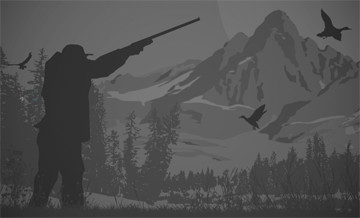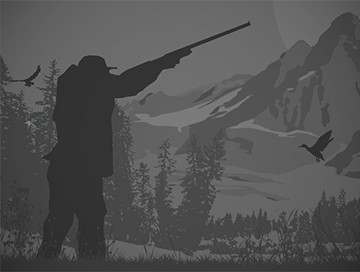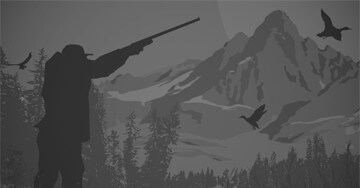Hunting in Tanzania
View 39 hunts View all hunts39 hunting trips from 2 outfitters starting from $14,500
Tanzania on map
About hunting in Tanzania
Tanzania is considered by many experienced Africa hands to be the crown jewel of Africa’s hunting countries. Not only does it boast a vast game list, but also Tanzania prides itself on its safari traditions, which include well-appointed tented camps and large staffs catering to the visiting hunter. A large country in East Africa covering 365,000 square miles, Tanzania still contains large regions of near-wilderness, such as the Selous Game Reserve and the Rungwa Game Reserve. It has a wide variety of ecosystems, from the Masai Steppe in the northeast, home to gazelles and oryx, to miombo forest in the south and west, home to sable and roan. Lion, leopard, elephant, and buffalo are well distributed throughout the country. The plains-game species are almost too numerous to list, and include some species that are hunted nowhere else in Africa. Among the most sought-after are eland, Grant gazelle, Thomson gazelle, Coke and Lichtenstein hartebeest, greater and lesser kudu, oribi, oryx, puku, several types of reedbucks, sable, roan, sitatunga, topi, suni, waterbuck, zebra, and white-bearded and Nyasa wildebeest. Tanzania has three classes of hunting licenses. A hunter must choose a ten-day, sixteen-day, or twenty-one-day license, and a larger variety of species are available on the longer licenses. For example, a hunter may hunt up to two buffalo and a variety of plains game on a ten-day license, but must buy a sixteen-day license to hunt crocodiles and waterbuck and a twenty-one-day license to hunt elephant, sable, roan, lion, leopard, oryx, greater kudu, and eland. In addition to the license fee, trophy fees are charged for each species taken, as well as other government fees, which can add significantly to the safari cost. A full-bag safari in Tanzania is not inexpensive by any means, but it is one of the hunting world’s most desired experiences.
Let Africa Inspire You and BookYourHunt Make it Reality!
Africa's plentiful and diverse wildlife offers a new adventure whether you're a first time African hunter or a seasoned veteran of many safaris. BookYourHunt has your first safari, or your next safari.
What you need to know
-
1. Planning your trip
-
2. Upon arrival
-
3. Hunting
-
4. After the hunt
Planning your trip
Visas
A tourist visa for traveling to Tanzania is required and must be obtained in advance of your trip. You’ll need to apply to the Tanzanian consulate in your home country, and will need to supply your passport, flight itinerary, two recent passport-size photos, an application form (filled out and signed), and the required fee, which is $100 for U.S. citizens. Allow several weeks for the process to be completed.
Health
Tanzania is a malaria zone country, and antimalarial drugs are strongly recommended.
Firearms
You will need to send your firearm details to your outfitter well in advance so the proper paperwork and permits will be ready for you up on arrival. Tanzania recently introduced a new requirement to import firearms for safaris: Hunters must now provide photographs of the firearm and of the serial number for any guns brought into the country. Only three rifles per hunter and 100 rounds per rifle may be imported. Automatic weapons and handguns are strictly forbidden. When hunting dangerous game (lion, elephant, and buffalo), the minimum caliber is .375.
If you intend to borrow a rifle from your safari operator, be aware that if your safari is jointly operated by two companies, only the operator conducting the hunt in a given area may provide firearms. If you plan to hunt with your operators' rifles in Tanzania, make sure ahead of time that rifles are available in accordance with Tanzania's regulations.
Upon arrival
Most hunters fly into either Arusha or Dar Es Salaam. A representative of your outfitter should meet you upon arrival to assist in clearing your firearms. Check with your outfitter to determine if you will need to exchange money at the airport, and be aware that many places in Tanzania do not take credit cards.
Hunts in Tanzania almost always require a charter flight from the city of arrival to the hunting area. Depending on when you arrive, your outfitter may arrange for you to stay overnight in a hotel and take the charter flight the following day, or be driven to the domestic airport immediately to catch your charter flight to camp. On arrival in the hunting area, you will be met by your professional hunter at the airstrip and then driven to camp.
Hunting
The hunting season in Tanzania begins on July 1 and ends on December 31. Tanzania has strict fair-chase hunting regulations that include the following: No animal may be shot from a vehicle or chased or driven by a vehicle. All hunting must be conducted within the hours of daylight. Female, young or immature animals are not to be hunted.
Most hunts in Tanzania are spot-and-stalk or safari style, with the hunters covering ground either on foot or by vehicle and, once an animal is spotted, completing a stalk on foot. Terrain varies dramatically from relatively flat savanna to rugged mountains, depending on the region of the country you’re hunting. Hunts for certain species require extensive walking; others require very little, so it’s a good idea to ask the professional hunter what to expect.
Dark green or brown clothing is best, as are comfortable, well-broken-in boots with soft soles for quiet stalking. You’ll only need a couple of changes of clothing as laundry is done daily at most camps. Bring a wide-brimmed hat, sunblock, good optics, and a jacket for cool mornings and evenings.
After the hunt
Tips
Tipping is appreciated in Tanzania, and camps in this country tend to have very large staffs with a high level of service, so check with your outfitter in advance regarding how much to bring for tips.
Trophy preparation
Typically, animals are skinned at the safari headquarters and all skins are cleaned and salted; skulls and horns are cleaned and buried in salt. After a couple of days, the skins are hung to dry, cleaned once more, and folded and stored in a skinning shed. Skulls will be cleaned and placed on a rack. Before leaving camp, it’s a good idea to ensure the skulls and skins are properly tagged with the hunter’s name and contact information.
Taxidermy
At the end of the season, trophies will be taken to a taxidermist for professional cleaning and dipping, which is required for export. The taxidermist then contacts the hunter for instructions regarding preparation and shipment, and to arrange payment for these services. The taxidermist then contacts a shipping agent, who will handle the permits and shipping to the hunter’s home country, again after contacting the hunter.
Export permits
CITES permits are required for exporting certain species, including lion and elephant, and it is the hunter’s responsibility to arrange for these in advance. In addition, enhancement permits are now required for import of certain animals into the USA. It is important that you are in possession of the relevant permits issued by the county into which you will be importing your trophies, and to be aware that many export and import requirements for these species have undergone dramatic changes in recent years.
Price distribution
Reviews
Interested in this destination? Create a subscription to get offers right to your inbox




